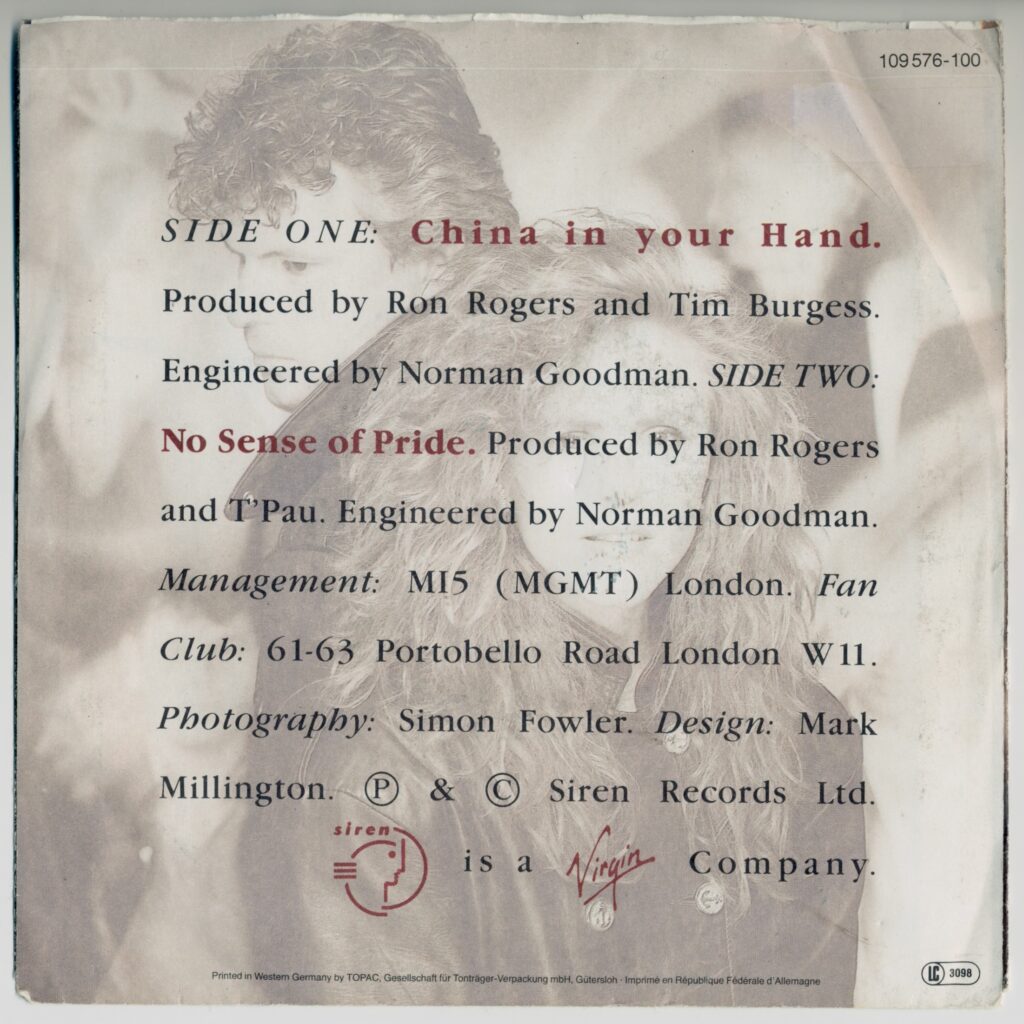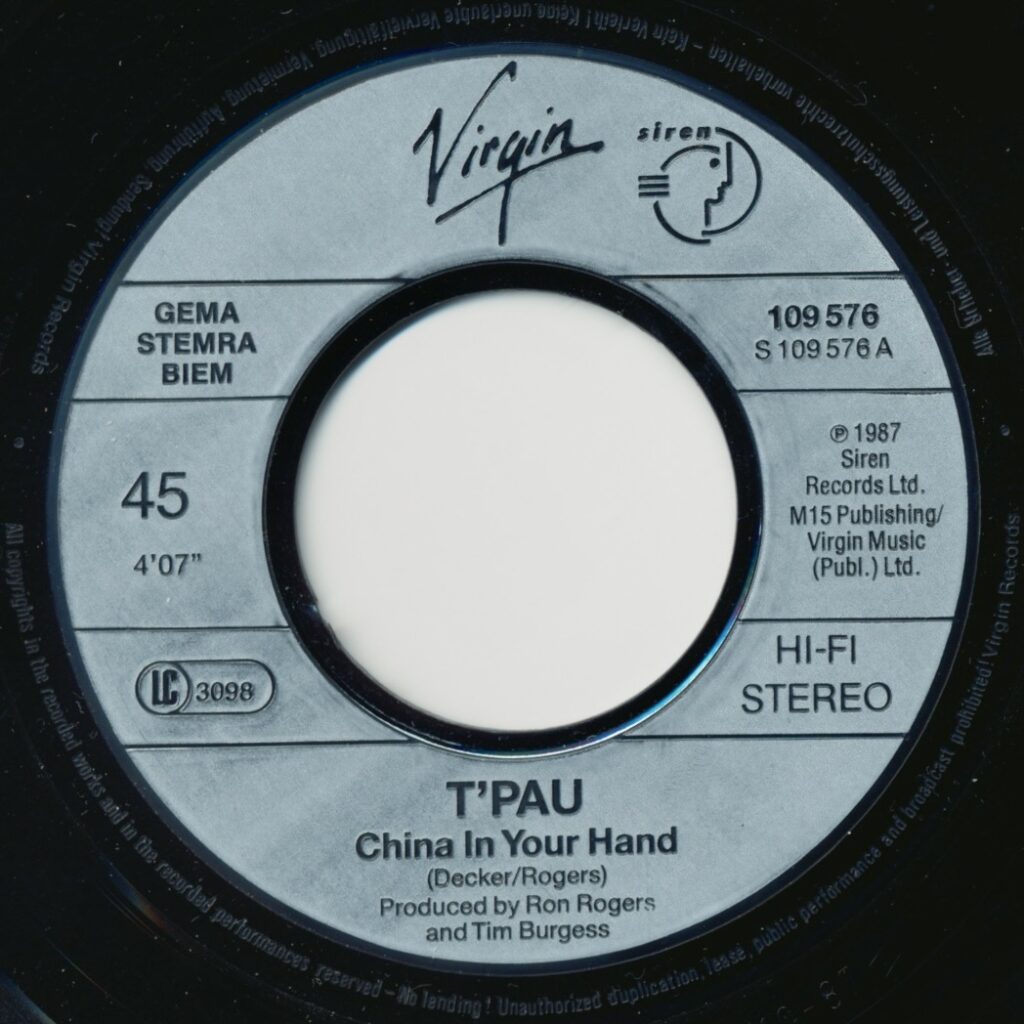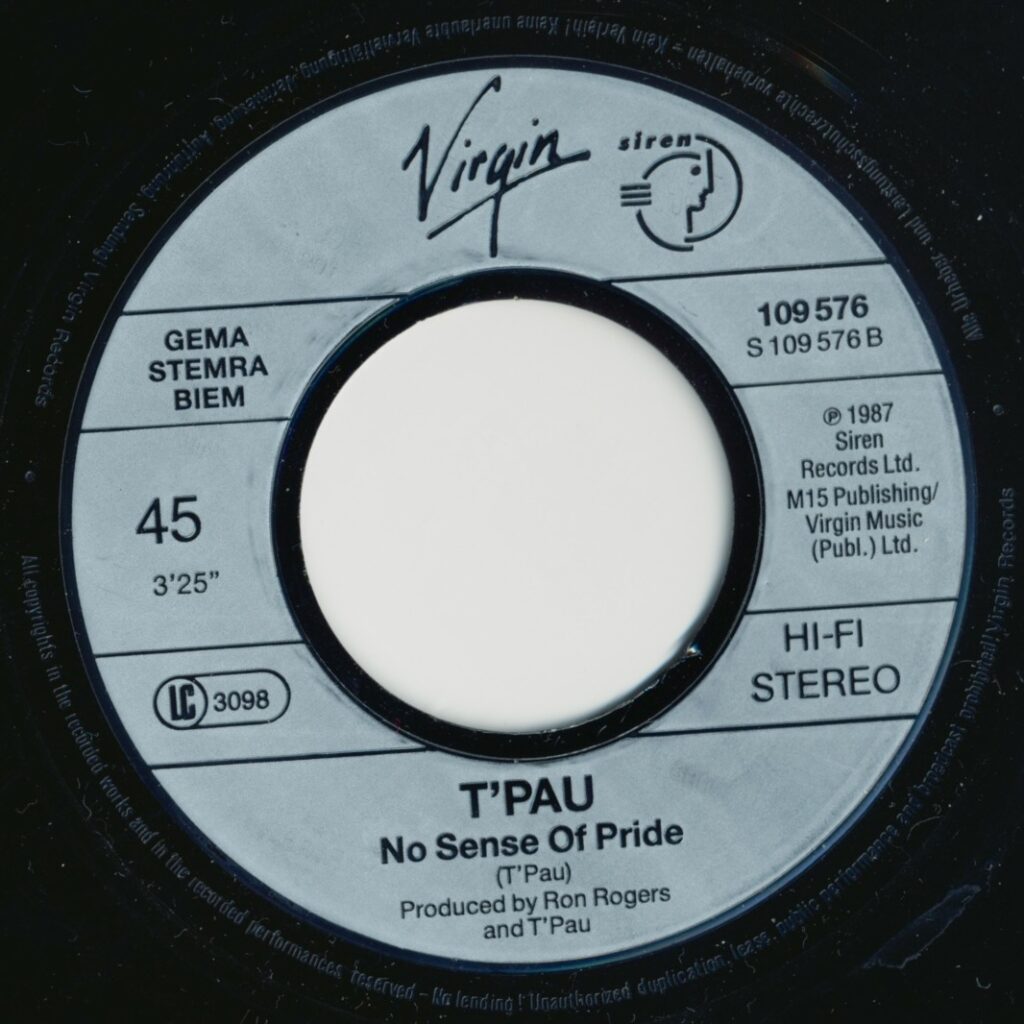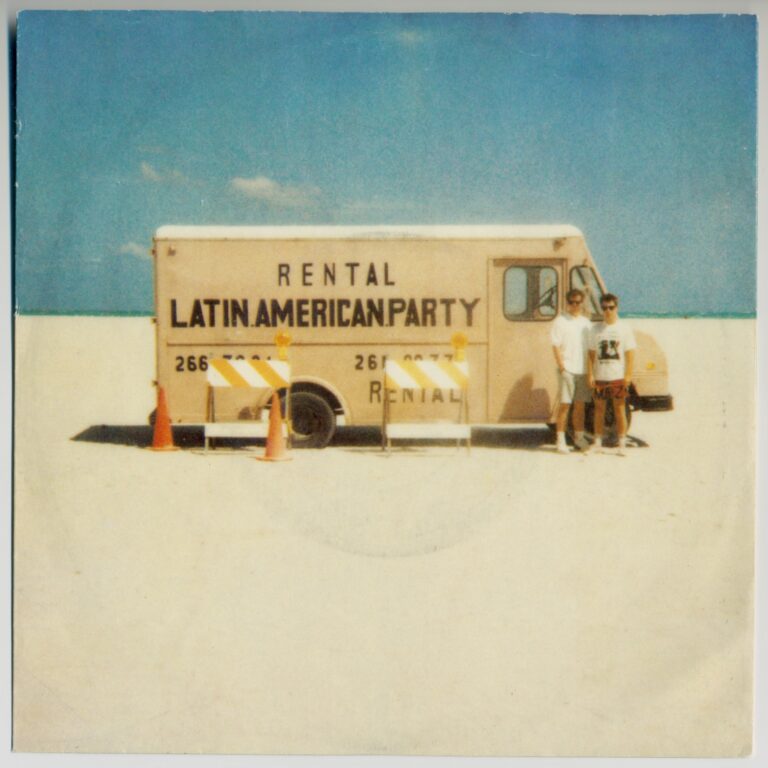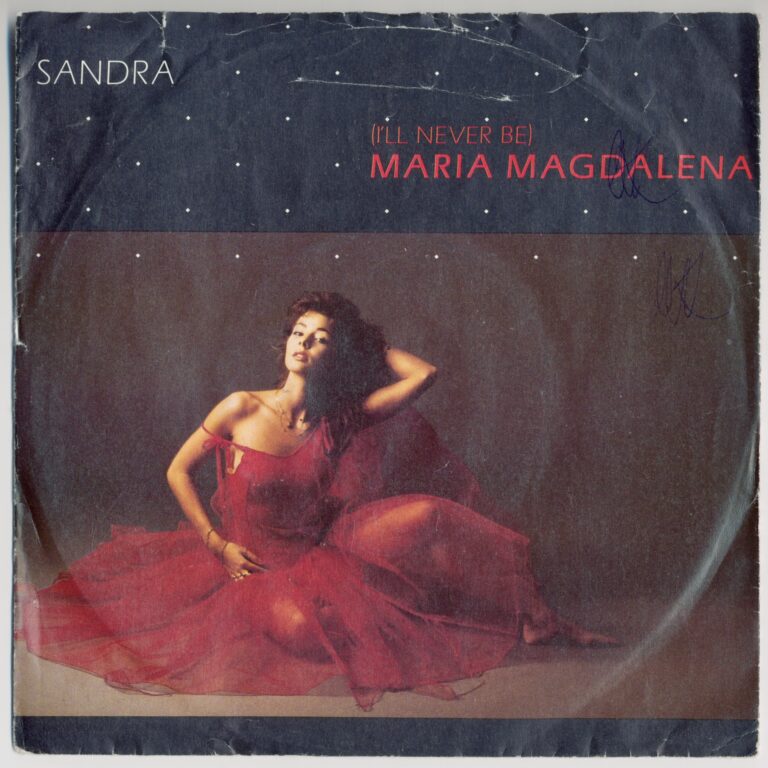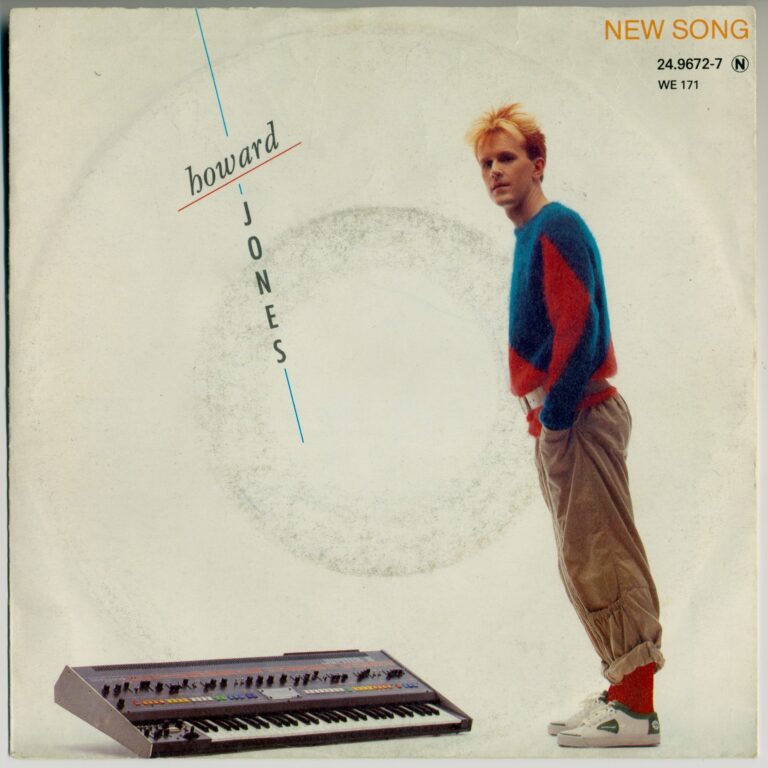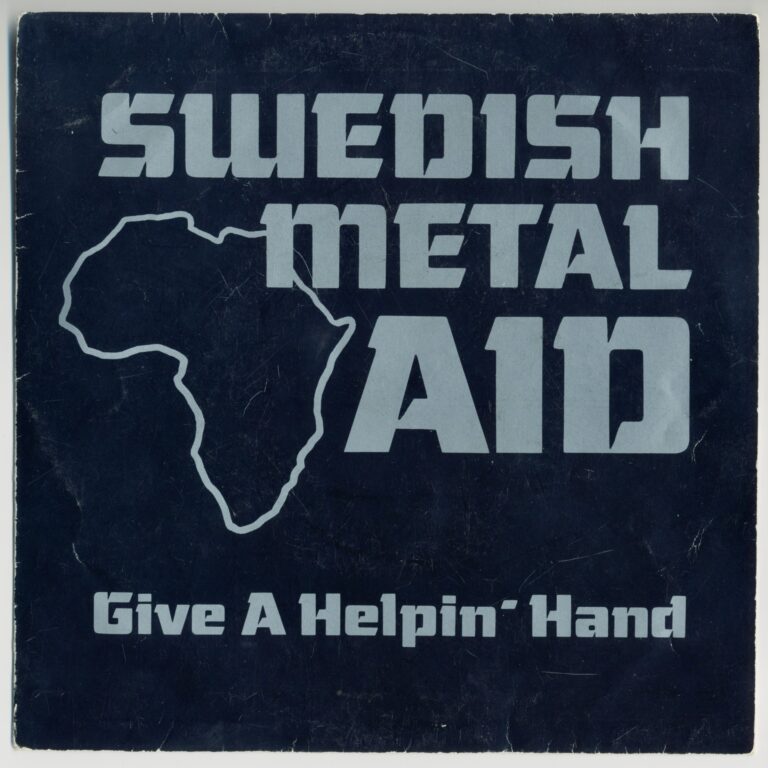In the swirling, synth-laden soundscape of the 1980s, amidst a vibrant collection of power ballads, a British band named T’pau emerged, destined to etch their name into the decade’s musical soul with one iconic anthem. But this wasn’t just another chart-topper; it was a song born from a profound creative bond, almost overlooked, and imbued with a surprising literary depth that few listeners ever truly grasped.
The heart of T’pau, and indeed “China in Your Hand,” lay in the undeniable chemistry between lead singer Carol Decker and guitarist Ron Rogers. Their journey began in Shrewsbury back in 1980, a tale straight out of a rock and roll romance. Carol, then fronting a local band, was immediately captivated by Ron, performing with a rival group. She describes his “dark, brooding, great charisma” and “excellent” playing, recognizing not just a musical partner but a profound life connection. Their songwriting blossomed in a rented boathouse in Shrewsbury’s riverside park, The Quarry, a testament to years of meticulous demoing before they even dared to audition for Virgin Records in 1986. Even decades later, that artistic connection endures, with Carol still writing with Ron, now releasing new material independently.
Yet, “China in Your Hand” very nearly didn’t see the light of day. It began as a simple “piano and vocal thing” and wasn’t even intended for their debut album. A last-minute scramble, necessitated by another song proving unworkable, opened the door for its inclusion. And then, like a guiding star, producer Roy Thomas Baker arrived, a man celebrated for his transformative work with Queen. Carol remembers him as the “studio Midas”. The moment Baker heard the raw, embryonic version of “China in Your Hand,” he knew. “That’s it! That’s your No. 1!” he declared, famously vowing to turn their “little piano song into Bohemian Rhapsody”.
“Don’t push too far / Your dreams are china in your hand / Don’t wish to hard / Because they may come true”
Baker’s vision was grand, a “larger than life” approach that involved heavy compression to make the track “sound amazing on the radio”. This decision initially infuriated their record label boss, who found it “awful” on home stereos. But Baker’s strategic genius was aimed squarely at radio dominance, especially in the crucial American market. This prioritization of broadcast quality, even at the expense of home fidelity, was a common tactic in the 80s, a deliberate gamble for airplay and chart glory. The single version, a re-recorded edit, was even slightly sped up, subtly shifting the key.
Beyond the production wizardry, the lyrics of “China in Your Hand” hold a surprising depth, subtly referencing Mary Shelley’s Frankenstein. The song delves into themes of creation, ambition’s unforeseen consequences, and the inherent dangers of unchecked dreams. Carol herself revealed the inspiration came from a documentary about Mary Shelley, Lord Byron, and John Keats. She was struck by how Shelley, at just 19, outsold both renowned poets, yet this success “caused much dissent and jealousy in her marriage and friendships, so created her own monster”. This resonated with the song’s core message: “be careful what you wish for in case you get it”.
The enigmatic title itself has a charmingly literal origin. It refers to the effect of holding a china cup to the light and seeing one’s hand through it, symbolizing transparency. Carol even revealed on BBC1’s The One Show that the actual china teacup belonged to Ron Rogers’ mother, and it was while washing it that she discovered a lump at the bottom, held it to the light, and saw the image of a young woman within. This personal anecdote lends a beautiful fragility to the song’s central metaphor, where unchecked dreams can shatter like delicate porcelain.
“China in Your Hand” soared to the top, spending five consecutive weeks at number one on the UK Singles Chart, even preventing George Harrison’s “Got My Mind Set On You” from reaching the pinnacle. Its success wasn’t limited to the UK, reaching number one in Belgium, Iceland, Ireland, the Netherlands, Norway, and Switzerland. In Sweden, a country T’pau visited for two concerts in 1987, the song notably spent seven weeks on the Swedish radio chart “Trackslistan” in 1987-1988, peaking at number 2. It even made the year-end lists for “Trackslistan” in both 1987 (number 50) and 1988 (number 55).
Despite its massive success, “China in Your Hand” faced a different fate in the US, where T’pau’s debut single, “Heart and Soul,” achieved greater prominence. Carol humorously suggested “Heart and Soul”‘s popularity was due to her “feeble attempt at a rap song” resonating with the “home of rap”. This divergence in market preferences highlights the nuanced, region-specific marketing strategies employed by record labels.
Decades later, “China in Your Hand” remains a beloved classic, consistently appearing on “best of” lists and resonating deeply with listeners. Carol Decker, despite the band’s official disbandment, continues to perform under the T’pau name, still writing with Ron Rogers and maintaining fierce pride in their back catalogue. “China in Your Hand” is more than just a song; it’s a testament to the power of a well-crafted pop ballad to capture a moment in time, weave a cautionary tale, and remain etched in our hearts for generations.
My copy: 7″, 45 RPM, Europe, 1987, Virgin / Siren
Trackslistan (Swedish radio chart): 7 weeks, peaked at #2, #55 on year-end list 1987, and #50 on year-end list 1988


